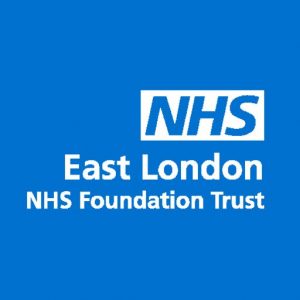Ruth Atkinson and Jessica Allen, members of DHSC Global Health Security team, recently completed a connecting placement at East London NHS Foundation Trust. Ruth and Jess have kindly shared their experience here.
We work in the Global Health Security team but for our connecting opportunity we decided to do something completely different, spending two days with the East London Foundation Trust (ELFT) mental health team.
ELFT mental health team use the Recovery Approach, which is all about supporting service users to recover in their own homes rather than in secondary care. This helps service users to gain independence and reduces institutionalisation, medicalisation and stigma. On top of this, primary care services offer greater continuity.
How does this work in practice?
The Inspire Programme offers a variety of community programmes that are tailored to different demographics. ELFT also run the Tower Hamlets Recovery College which supports wellbeing and mental health recovery through education and learning.
We observed consultations with service users who may have previously been institutionalised but were instead being supported in the community. A mental health nurse meets with service users at least once a month to check-in on their wellbeing and make sure they pose no threat to themselves or others. In one of the consultations, a service user spoke about how the appointments had helped her to rediscover a passion for art and as a result she had integrated into the community after struggling with isolating depression for most of her adult life.
Challenges
Members of the team have very different roles, experiences and skills but the one recurring comment was that the caseloads were beyond manageable. One reason staff gave for this is that GPs are hesitant to take responsibility for safeguarding issues, referring people onto the trust with low-level mental health issues, or even social issues, like poverty and poor housing.
In terms of safeguarding, professionals must take informed decisions that tread a fine line between different views on mental health. We learned that The Recovery Approach is surrounded by potential controversy. One health care professional told us that the media claims that there are too many people with schizophrenia living in the community, representing a security threat, while civil society groups, such as Mind, rally against over-hospitalisation.
Achievements
In terms of safeguarding controls for professionals, we were impressed by the Skyguard alarms that nurses are provided by for home visits: if they are in physical danger, staff at the trust can listen in and the police can be notified. It was also good to hear that the trust changed its approach when things went wrong. Last year, the Trust very sadly had two cases of suicide within a month – staff caseloads were reduced in response.
We were lucky enough to sit in on a Carers Hub meet-up, an initiative that has been nominated for this year’s RCNi Nurses Awards. The brainchild of the ELFT practitioners, the Hub offers carers a safe, supportive space to connect with others, focus on their own wellbeing and get practical and emotional support. This drive to set up a dedicated group to support carers was just one example of the dedication and professionalism that we saw on our 2-day visit.
Takeaway
What particularly struck us was the need to be more joined-up in our approach to mental health, given the clear crossovers between mental health, physical health and the social determinants of health.
Low motivation and the side effects of medication mean that people with poor mental health can have poor physical health and be less able to manage chronic physical conditions. Disorders that start in the mind can also have physical manifestations; for example, one of the service users we met experiences chronic muscle pain that was closely linked to her mental health issues. The crossover between mental and physical health raises a clear argument for parity of esteem between physical and mental health.
On the social side, rising debt can lead to a relapse of an acute mental health episode. At the same time, people with long-term conditions may get deskilled and become less employable which is why programmes like Tower Hamlets Recovery College are so valuable.
We were really pleased to see the close working relationships between the service users, carers and professionals, and were grateful to have been given an insight into this important work. Thank you ELFT!
Want to know more about how Connecting can help you and your team? The Connecting team (Jane Ellis in London and Roy Axon and Sophie Collinson in Leeds) would be very happy to join in with team meetings – get in touch via the Connecting mailbox (connecting@dh.gsi.gov.uk)

2 comments
Comment by Jeremy Clark posted on
Interesting blog - out of interest, did you come across any examples of Peer Support Workers with lived experience of mental health conditions working in the Recovery College or elsewhere in ELFT?
Comment by royaxon posted on
Hi Jeremy thank you for the enquiry, Ruth and Jess advise: We didn't come across examples of Peer Support Workers on our connecting experience but we did meet a group of volunteer carers with lived experience of mental health conditions.